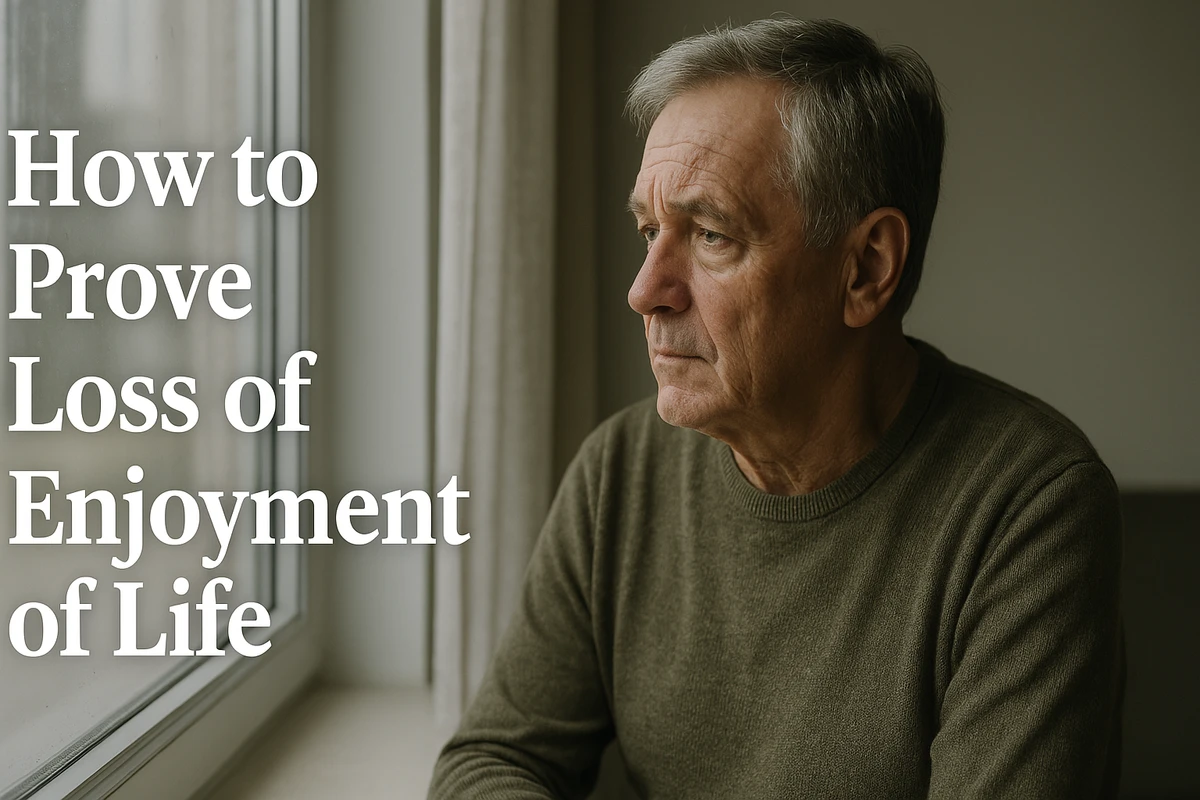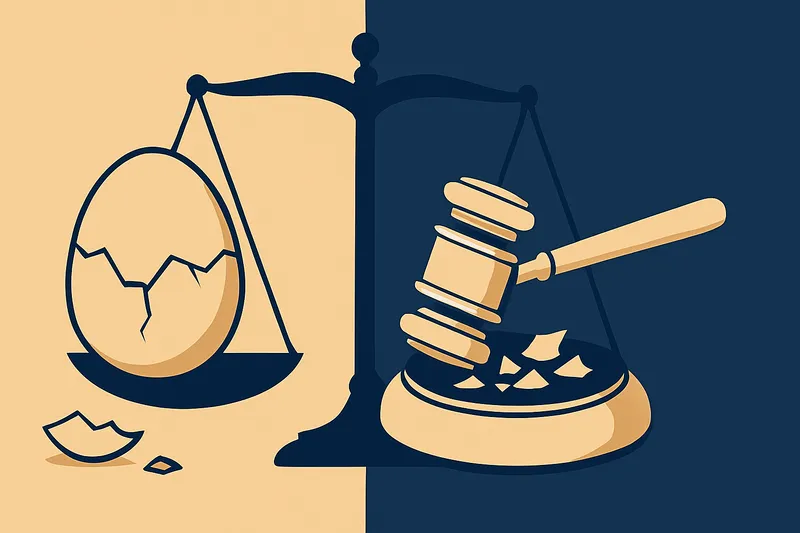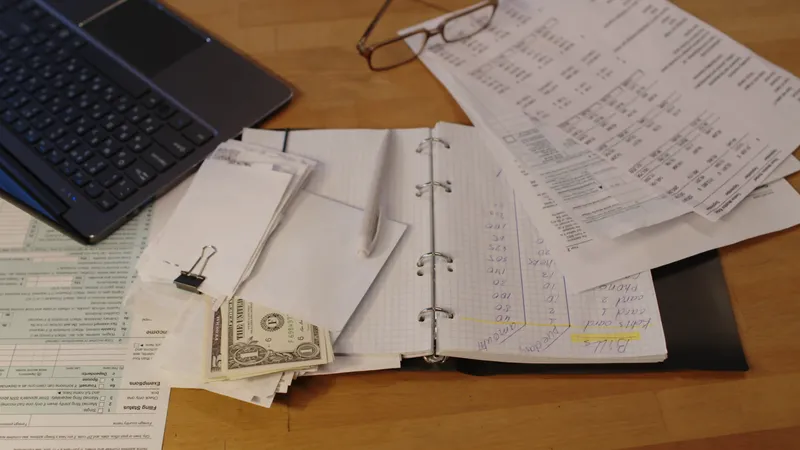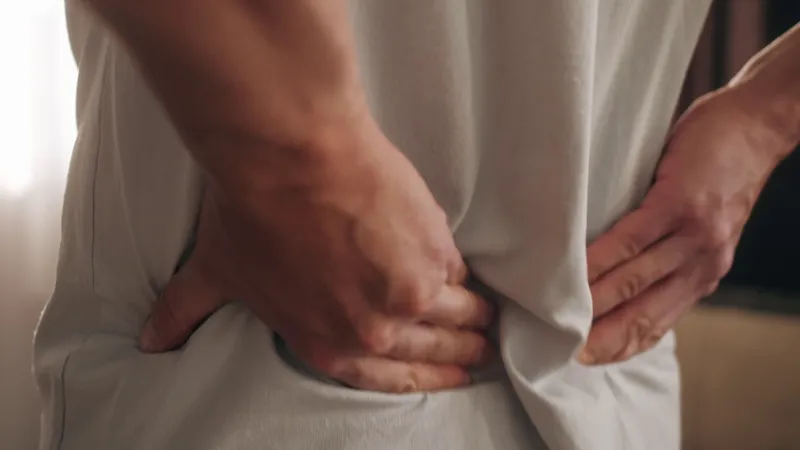How to Prove Loss of Enjoyment of Life

Published: 4/3/2025
Being injured in a car accident can change your life in more ways than just medical bills and lost income. Many victims find they can no longer partake in hobbies, activities, or daily pleasures that once made life enjoyable.
How to Prove Loss of Enjoyment of Life
Georgia law recognizes this harm as “loss of enjoyment of life,” a type of non-economic damage that an injured person can claim in a personal injury case. In simple terms, this refers to a diminished quality of life due to accident-related injuries – for example, no longer being able to play with your kids, exercise, or even perform everyday tasks without limitations. This article explains what loss of enjoyment of life means in Georgia, how it differs from general pain and suffering, how Georgia law treats this loss, what evidence can prove it, real case examples, and how an attorney can help you recover these damages.
What Is “Loss of Enjoyment of Life”?
In legal terms, loss of enjoyment of life describes how an injury negatively impacts your ability to enjoy the normal activities of daily living. It focuses on the loss of pleasure in life’s experiences that you used to have before the accident. Put another way, it is the reduction in your quality of life caused by your injuries. This loss can manifest in many ways depending on the person and the injury. For instance, an avid runner who suffers a serious leg injury in a Georgia car crash might not only endure physical harm, but also lose the ability to continue running – a daily hobby and source of joy that gave life meaning. Similarly, someone who was once active in sports, social activities, or even routine household tasks may now find those things difficult or impossible, leading to frustration and sadness.
Crucially, loss of enjoyment of life is a non-economic damage, meaning it does not have a direct monetary cost but is an intangible loss. Georgia law classifies it under “general damages,” which are losses presumed to flow from the injury. This category includes pain and suffering, emotional distress, and other subjective harms. Because loss of enjoyment of life isn’t a physical item you can show a receipt for, it can be challenging to quantify. However, Georgia courts acknowledge that this loss is very real and compensable to the injured person.
How Is It Different from Pain and Suffering?
Loss of enjoyment of life is related to but not the same as general pain and suffering. Pain and suffering encompasses the physical pain and the mental/emotional anguish caused by an injury – for example, the pain of a broken bone or the trauma of the accident. Loss of enjoyment of life, on the other hand, focuses on the limitations on your lifestyle and day-to-day pleasures that result from your injuries. In essence, pain and suffering is about what you feel, while loss of enjoyment is about what you can no longer do.
To illustrate the difference, consider someone who suffers a spinal injury in a car accident. Their pain and suffering damages would address the chronic back pain, discomfort, anxiety, and other emotional distress they experience. The loss of enjoyment of life element would address the fact that, due to the spinal injury, they can no longer engage in activities that used to bring them happiness – such as playing basketball, dancing, or even comfortably gardening. Georgia law recognizes loss of enjoyment of life as a consequence of the injury that goes beyond the immediate pain. It is often viewed as an element or factor of the overall pain and suffering damages, but it zeros in on the diminished quality of life caused by the accident.
It’s important to note that in Georgia you generally must have a physical injury in order to claim pain and suffering damages (including loss of enjoyment). This isn’t an issue in most car accident cases (since physical injuries are usually present), but it means purely emotional losses without any bodily injury are harder to recover. Assuming a physical injury exists, you are entitled to seek compensation for both the pain itself and the loss of life’s enjoyment that comes with serious injuries.
Recovering Loss of Enjoyment of Life Damages Under Georgia Law
Georgia law allows car accident victims to recover monetary compensation for loss of enjoyment of life as part of their non-economic damages. There is no separate statute that you have to invoke by name – it falls under the umbrella of pain and suffering or general damages in a personal injury claim. In fact, Georgia courts have explicitly acknowledged “interference with enjoyment of life” as one of the elements a jury may consider when awarding pain and suffering damages. In a notable case, the Georgia Court of Appeals listed factors like impairment of health, interference with normal living, and diminished capacity for enjoyment of life among the considerations for a pain and suffering award. This means that when a jury is deciding how much to award an injured plaintiff for non-economic losses, they can (and should) factor in evidence that the person’s lifestyle and happiness have been curtailed by the injuries.
Importantly, Georgia does not cap or limit the amount of pain and suffering or loss of enjoyment damages in standard personal injury cases. Unlike some states, Georgia has no statutory ceiling on general damages for things like car accident injuries (caps were ruled unconstitutional in medical malpractice cases, and none exist for general personal injury). This means a jury can award whatever amount they deem fair for the plaintiff’s intangible losses, whether it’s a few thousand dollars or millions, depending on the severity of the case. Georgia law even permits attorneys to suggest a dollar value for pain and suffering to the jury during trial arguments, as long as it’s supported by the evidence.
That said, calculating these damages is not an exact science. Georgia law provides no formula for converting life’s pleasures into dollars. Instead, the law entrusts this determination to the enlightened conscience of an impartial jury. In practice, this means jurors use their judgment and life experience to decide what amount of money would fairly compensate someone for their lost enjoyment of life. They might consider the plaintiff’s age, the activities lost, the extent of the injury, and how profound the life change is. For example, losing the ability to walk and participate in virtually all hobbies would merit a larger award than a minor temporary inconvenience. Ultimately, the guiding principle (often given in Georgia’s Pattern Jury Instructions) is that the jury should award an amount that, in their enlightened conscience, is fair and just in light of the evidence.
Evidence to Prove Loss of Enjoyment of Life
Because loss of enjoyment of life is inherently subjective, proving it requires painting a clear “before and after” picture of the plaintiff’s life. You must show the jury or insurance company how your life was before the car accident and how it is after the accident, highlighting the specific losses of pleasure and activity. Here are key types of evidence and methods that can help establish this element of damages:
-
Your Own Testimony: Your personal narrative is crucial. You can testify about the activities you used to enjoy – from exercising, sports, and travel to simple pleasures like playing with your grandchildren or going out to dinner – and explain how your injuries now prevent or limit those activities. Be specific: for instance, “I used to go hiking every Saturday, but now I can barely walk to the mailbox without assistance.” Your testimony should also convey the emotional impact of these losses (e.g. feelings of sadness, frustration, or isolation). In many cases, the injured person’s first-hand account is the most vivid evidence of how an injury disrupted their life.
-
“Before and After” Witnesses: These are people who knew you before the accident and after – such as family members, close friends, coworkers, or neighbors – who can attest to changes in your lifestyle and demeanor. For example, a coworker might testify that you used to be the life of the company softball team but now you can only watch from the sidelines. A spouse or friend could describe how you went from being active and outgoing to struggling with daily tasks and social withdrawal. Such witnesses lend credible outside perspective to confirm that you genuinely lost certain abilities or joys (not just that you claim so). In Georgia, using before-and-after witnesses is a common and effective way to prove intangible losses. These witnesses can verify that “John loved fishing every weekend before the crash, and now he hasn’t been able to go at all,” thereby illustrating your loss of enjoyment in a concrete way.
-
Medical Records and Expert Testimony: Your medical documentation and doctor’s testimony can substantiate the physical reasons behind your loss of enjoyment. Doctors can explain the extent of your injuries and the resulting functional limitations. For instance, a physician might testify that due to your spinal injury, you cannot lift more than 10 pounds or walk more than a short distance, which directly impacts your ability to do activities like jogging, playing with your children, or even performing certain household chores. If psychological injuries are involved (such as PTSD or depression after the accident), a mental health professional’s testimony can link those conditions to a reduced participation in life’s activities. Medical evidence thus provides the objective background that explains and supports your subjective claims. It shows that you are not merely choosing to avoid activities – you are medically unable to do them as before.
-
Photographs and Videos: Visual evidence can be powerful. Photos or home videos from before the accident can depict you engaging in the hobbies, recreation, or family activities that you loved. Then, photos/videos after the accident might show you using a wheelchair, missing a limb, or simply absent from activities you once took part in. For example, a photo of you smiling on a mountain hike last year contrasted with a photo of you now at home in a back brace can wordlessly communicate the gulf in your life. Such evidence makes the loss tangible for the jury. In some cases, lawyers create a “Day in the Life” video documenting the plaintiff’s daily struggles post-injury – while not specific to enjoyment, it can indirectly show how much the person’s routine and abilities have changed.
-
Personal Journals or Diaries: If you kept a journal, pain diary, or even social media posts detailing your recovery, these can serve as contemporaneous evidence of your struggles and lost joys. For instance, an entry might read, “Everyone went to the park today, but I had to stay home because of my leg pain – feeling very left out and depressed.” Such records, if available, can corroborate your testimony by showing in real-time how your injuries affected your enjoyment of life. Attorneys sometimes encourage clients to document their day-to-day limitations and feelings during recovery for this reason.
-
Testimonials from Family Members (Loss of Enjoyment within the Household): Family can speak not only as before-and-after witnesses, but also to describe how the injury victim’s loss of enjoyment affects the household. For example, a spouse might say, “We used to dance together every week, and now we can’t. I see how it saps his spirit.” While this can overlap with a spouse’s loss of consortium claim (which is separate), it still reinforces the injured person’s own loss of life pleasure.
In gathering evidence, think creatively and thoroughly. The goal is to prove that you actually engaged in and enjoyed the activities you claim to have lost, and to show the contrast after the injury. Georgia injury attorneys often compile photo albums, witness statements, and medical reports to build this narrative. In short, you want to transport the judge or jury into your shoes – so they understand just how significantly your world has changed because of the accident.
Examples from Georgia Cases
Georgia courts have addressed loss of enjoyment of life in various personal injury cases (including car accidents), reinforcing that it is a valid component of damages. Here are a couple of examples illustrating how this claim has been handled:
In Food Lion, Inc. v. Williams, a 1995 Georgia Court of Appeals case, the injured plaintiff had slipped and fallen in a grocery store. The court explained that in assessing pain and suffering damages, the jury could consider several elements – one of which was the plaintiff’s “interference with enjoyment of life.” Specifically, the court listed “interference with normal living” and “interference with enjoyment of life” among the factors for determining non-economic damages. This case confirmed that Georgia juries are entitled to compensate an injured person for the ways an injury diminishes their ability to enjoy day-to-day living. In practical terms, if a car accident leaves you unable to pursue your hobbies or social life, a Georgia jury can award money specifically for that loss of enjoyment as part of your pain and suffering verdict.
In a more recent case, the Georgia Court of Appeals upheld a jury’s verdict which included a substantial amount for the victim’s lost enjoyment of life. In that case, the plaintiff’s injuries were catastrophic, and the jury awarded several million dollars in non-economic damages. On appeal, the court noted that the award was supported by evidence of the plaintiff’s reduced quality of life – essentially, the jury had placed a high value on how much the injuries curtailed the plaintiff’s enjoyment of living. The court refused to disturb the award, acknowledging that it was the jury’s prerogative to appraise the plaintiff’s loss of enjoyment. While every case is different, this example shows that Georgia courts will uphold compensation for loss of enjoyment of life when it is backed by evidence. Juries have wide latitude to decide what that loss is “worth,” and courts will generally not second-guess them unless the amount is clearly unreasonable or unsupported.
(Note: “Loss of enjoyment of life” should not be confused with loss of consortium, which is a separate claim typically brought by the injured person’s spouse for loss of companionship and intimacy. Loss of enjoyment of life refers to the injured individual’s own loss of ability to enjoy life’s activities. In a car accident case, only the injured person can claim loss of enjoyment of life, whereas a spouse might have a distinct loss of consortium claim. Georgia law allows both types of non-economic damages when applicable.)
How an Attorney Can Help Prove Loss of Enjoyment
Proving loss of enjoyment of life can be one of the more challenging parts of a personal injury case, because it is deeply personal and subjective. This is where an experienced Georgia personal injury attorney can make a significant difference. A lawyer who understands Georgia law and has handled car accident cases will know how to build and present a compelling case for your lost enjoyment of life.
Here are ways an attorney can assist:
Identifying and Preserving Evidence: A seasoned attorney will help you gather the right evidence mentioned above – from contacting eyewitnesses who can speak about your former activities, to obtaining all relevant medical reports. They might ask you to compile photographs or videos from before your injury, or even help you keep a journal of your post-accident limitations. By organizing this evidence early, a lawyer ensures that no important detail is overlooked. For example, your attorney may interview your family and friends (the before-and-after witnesses) to get their insights and prepare them to testify about the changes they’ve seen in you.
Expert Testimony: Attorneys often have networks of experts they can call upon. In a loss of enjoyment claim, your lawyer might retain a medical expert (to explain how the injuries limit you) or even a life-care planning expert who can describe what activities you likely will remain unable to do in the future. In some cases, economists are used to discuss “hedonic damages” (another term for loss of life enjoyment) and assign some framework of value to them. An experienced attorney will know when such experts might bolster your case and how to use their testimony effectively.
Articulating Your Story: It’s not always easy for injured people to articulate just how their life has changed – you may feel it deeply, but struggle to convey it in legal terms. A personal injury lawyer can work with you to craft a narrative that clearly communicates your losses to the insurance adjusters and jurors. They will ensure that the presentation is empathetic but credible, avoiding exaggeration while still powerfully conveying your suffering. They may strategize on which witnesses to put on the stand first, how to use visuals, and even what analogies might resonate with a jury. The goal is to make your loss of enjoyment real to those deciding your case.
Dealing with Insurance Companies: Insurance adjusters often downplay non-economic damages like pain and suffering or loss of enjoyment, since those are the damages that can drive a settlement value up. A lawyer can push back against this minimization by presenting a strong claim package that highlights your life changes. For instance, your attorney can include in a demand letter a section detailing “Loss of Enjoyment of Life,” supported by photographs of you in happier times and statements from loved ones. By doing so, they signal to the insurer that this aspect of your damages is well documented and will be persuasive to a jury – encouraging a fair settlement rather than a lowball offer.
Ensuring Proper Jury Instructions and Legal Arguments: If your case goes to trial, your attorney will request the proper jury instructions so that jurors understand they can award damages for loss of enjoyment of life. In Georgia, this usually means making sure the general pain and suffering instruction encompasses things like interference with normal living and enjoyment of life. Your lawyer can also make effective arguments in closing – for example, comparing the value of things money can buy to the priceless experiences you’ve lost – to guide the jury in awarding a generous but reasonable sum for your intangible losses. Georgia law allows counsel to suggest a monetary range or figure for these damages in argument, based on evidence, which a skilled attorney will utilize carefully.
Perhaps most importantly, an attorney provides empathetic guidance through this process. They understand that talking about how your life has changed can be emotional. A good lawyer will help you channel that emotion into effective evidence, all while making sure the legal requirements are met. As the Georgia law firm Scholle Law notes, “An experienced and knowledgeable attorney can help you build the strongest case proving your loss of enjoyment of life.” Having professional advocacy not only improves your chances of full compensation, but also relieves you of the burden of navigating complex legal issues while you are trying to heal and adjust to your new normal.
Conclusion
Loss of enjoyment of life is a significant damage that many car accident victims in Georgia experience. It represents the very real loss of happiness, hobbies, and quality of life that injuries can cause. While it may be intangible, Georgia law allows you to recover financial compensation for this loss as part of your personal injury claim. Proving it requires careful documentation of how your life has changed – comparing your activities and joys before versus after the accident – and the presentation of compelling evidence like testimony, photos, and records. Georgia courts have upheld these claims and acknowledge that an injury’s impact on someone’s life enjoyment is a valid element of damages.
If you’re pursuing a car accident injury case, don’t overlook the importance of claiming loss of enjoyment of life in addition to your medical expenses and lost wages. These non-economic damages often constitute a large part of your total compensation because they account for the human impact of your injuries. Working with a qualified Georgia personal injury attorney can greatly strengthen your ability to prove this aspect. Your attorney can help gather the right evidence – from your doctors and loved ones – and persuasively show the insurance company or jury what your lost enjoyment truly means in everyday terms.
No amount of money can truly replace the ability to live life the way you once did. However, obtaining compensation for loss of enjoyment of life serves to acknowledge your suffering and provide some measure of justice. It can also give you resources that might help you find new ways to improve your quality of life despite your injuries. In Georgia, the law strives to make injury victims “whole” as much as possible, and recognizing loss of enjoyment of life as a compensable harm is an important part of that principle. By thoroughly documenting your losses and with the help of a knowledgeable attorney, you can present a strong claim for the loss of life’s enjoyment and secure the compensation you deserve for this profound, life-altering loss.
Related Articles





